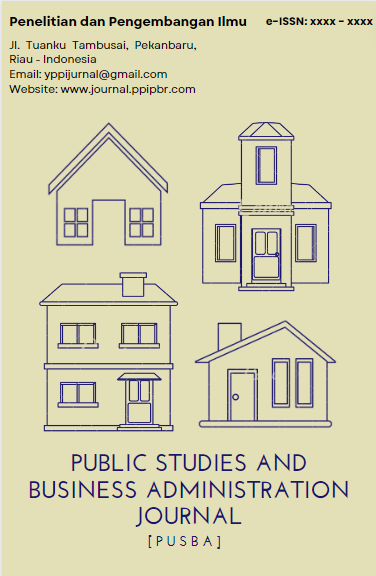BEHAVIORAL PUBLIC ADMINISTRATION: NUDGING FOR BETTER COMPLIANCE IN TAX AND REGULATORY SYSTEMS
DOI:
https://doi.org/10.62207/d7qx5a61Keywords:
Nudge, Tax Compliance, Regulatory Compliance, Traditional Sanctions,Behavioral Public Administration, Deterrence Theory, Voluntary ComplianceAbstract
This study reviews the effectiveness of interventions compared to traditional sanctions in improving tax and regulatory compliance, highlighting the challenges tax gap in Indonesia. ModeldeterrenceTraditional methods, while effective in the short term, carry high costs and have the potential to erode trust. In contrast,behavioral public administration with nudge(simplification of procedures, reminders, social norms) have been shown to be more cost-effective and effective in encouraging voluntary compliance, especially in environments with high public trust.However, the effectiveness, limited by low tax morale, decay effects, and the cultural-institutional context. Traditional sanctions remain important for serious offenders, but can damage long-term trust. Academically, this study enriches the public administration literature by emphasizing behavioral insights, bridging deterrence theorywith a behavioral perspective.Policy implications include a shift to behavioral informed regulation, contextual design, and hybrid models (nudge+ sanctions) for optimal balance. Leveraging digital technology is also crucial for efficiency. In conclusion, a hybrid approach is the optimal strategy for sustainable compliance.
Downloads
Published
Issue
Section
License
Copyright (c) 2025 Wiszda Asma, Laili Witriana (Author)

This work is licensed under a Creative Commons Attribution-NonCommercial 4.0 International License.
http://creativecommons.org/licenses/by-nc/4.0/?ref=chooser-v1

















